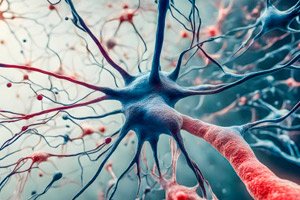
All iLive content is medically reviewed or fact checked to ensure as much factual accuracy as possible.
We have strict sourcing guidelines and only link to reputable media sites, academic research institutions and, whenever possible, medically peer reviewed studies. Note that the numbers in parentheses ([1], [2], etc.) are clickable links to these studies.
If you feel that any of our content is inaccurate, out-of-date, or otherwise questionable, please select it and press Ctrl + Enter.
Natural brain rhythms set cortisol levels and influence wakefulness
Last reviewed: 09.08.2025

A study led by Ōtākou Whakaihu Waka found that nerve cells that control stress turn on and off at a constant rate about once an hour – even when nothing stressful is happening.
Senior author Associate Professor Carl Iremonger, from the Department of Physiology and Centre for Neuroendocrinology at the University of Otago, says these rhythms form patterns of activity and alertness.
"These bursts of nerve cell activity appear to act as a natural 'wake-up signal' and often lead to increased levels of stress hormones, or cortisol.
This world-first research opens the door to exploring how these rhythms influence health, mood and sleep," says Carl Iremonger, Associate Professor in Otago's Department of Physiology and Centre for Neuroendocrinology.
For this study, published in the prestigious journal PNAS, the scientists used an optical technique called photometry to track the activity of nerve cells in mice and rats.
"This involved shining a light into the animals' brains, allowing us to observe the activity of nerve cells throughout the day and night while the animals were free to move around. We could then map how the activity of neural pathways was coordinated with sleep/wake cycles and stress hormone levels."
A group of nerve cells called corticotropin-releasing hormone (CRH) neurons have been shown to be particularly important in the circadian rhythms of stress hormone release.
"These neurons switch on and off in a regular rhythm, about once an hour. Interestingly, we found that these changes are coordinated with sleep-wake cycles, suggesting that the firing pattern is linked to wakefulness or alertness. We also found that when CRH neurons are artificially activated, the animals' behavior changes - those that had previously been quietly resting become hyperactive."
Associate Professor Iremonger says the findings could lead to a better understanding of how disruption to stress rhythms can lead to changes in mood and sleep disturbance.
"Drugs that reduce the activity of CRH stress neurons may also be useful for treating conditions associated with an overactive stress response.
Our new research helps us understand how the brain controls these normal rhythms of stress hormone release. Understanding how these brain signals work will help us understand the links between stress hormone levels, alertness, and mental health."
